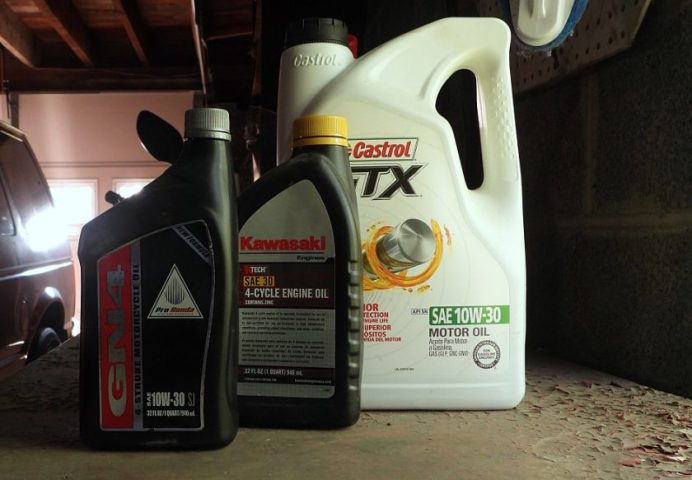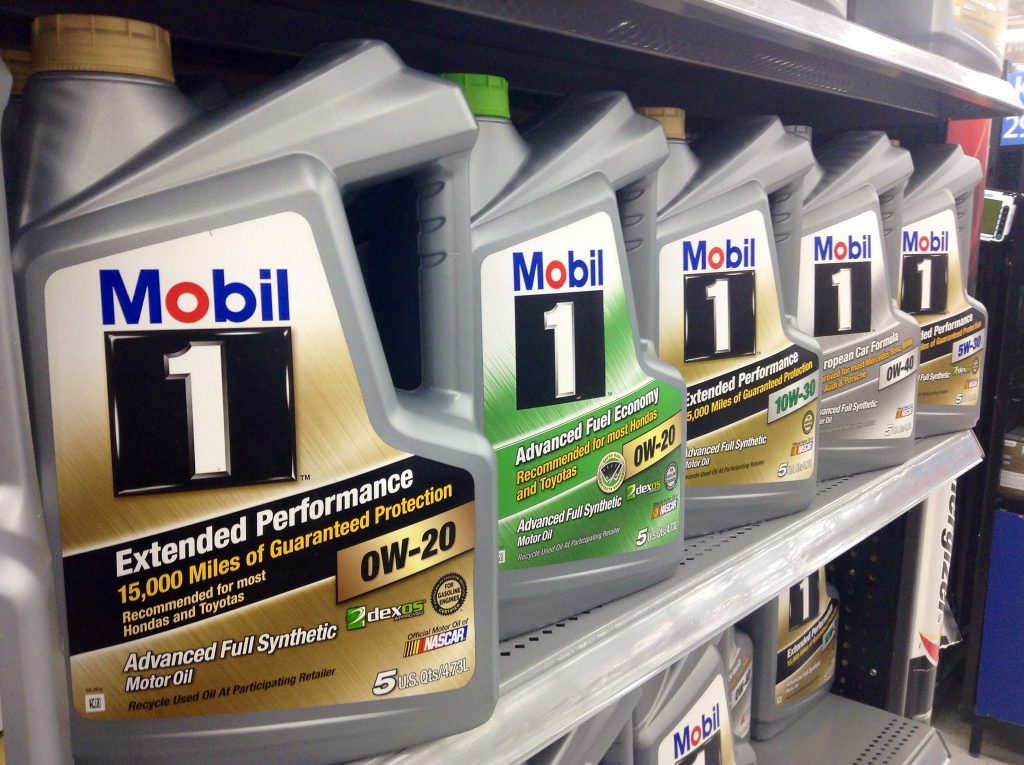Motor oil is an essential part of a car’s engine. It helps to keep the engine running smoothly and prevents it from seizing up.
But what happens when the temperature outside drops below freezing? Will the motor oil freeze and cause the engine to stop working?
In this blog post, we will answer that question and discuss what you can do if your motor oil does freeze.
Key Takeaway
- Motor oil is not capable of freezing because it does not contain water. It can only become extremely thicker.
- If a motor oil freezes, it means that it has been contaminated with water.
- Motor oil should be stored in a dark cold place to preserve its viscosity and technology.
What Temperature Does Motor Oil Freeze?

Because the motor oil is made of base oil and contains no water, it is not capable of freezing. However, the colder the oil is, the thicker it becomes and does not flow as easily. It is a common misconception and many people think that the oil freezes whereas, in reality, the motor oil only gets thicker/harder.
Motor oil is a lubricant used to protect engines from wear and tear. It is typically made of base oil, such as petroleum or synthetic oil, and a variety of additives.
The additives can include detergents to help clean the engine, antioxidants to prevent oxidation, and anti-foam agents to prevent the oil from foaming up. Motor oil also contains abrasives that help to keep engine parts clean and sediments suspended.
The proportions of the base oil and additives vary depending on the type of motor oil, such as conventional, synthetic, or high mileage.
When it comes to motor oil, there are many different types to choose from. However, not all motor oils are created equal. Some are designed for high-performance engines, while others are better suited for use in cold weather.
When choosing motor oil for your car, it is important to consider the climate in which you will be driving. If you live in an area with cold winters, you will need an oil that performs well at lower temperatures.
Synthetic oils are typically the best choice for use in cold weather, as they maintain their viscosity better than conventional oils.
As a result, synthetic oils provide better protection for your engine during start-up and operation in colder temperatures. If you are looking for motor oil that performs well at lower temperatures, synthetic oils are the best option.
Does Oil Freeze In Winter?

Motor oil can indeed solidify under extreme cold conditions, though it does not technically “freeze” in the way water does.
In general, motor oil and other types of oil, such as heating oil, do not freeze into a solid state like water.
However, they can reach a semi-solid or waxy state under extremely cold temperatures.
The specific temperature at which this happens depends on the type of oil and any additives it may contain.
For instance, heating oil begins to solidify when temperatures drop to around 16°F.
Similarly, motor oil can become permanently thicker when exposed to northerly winter-type weather, a problem more prevalent in mineral-based oils.
Some oils designed to operate at high temperatures can even solidify at temperatures above freezing, such as 0°C or even 15°C.
Is It OK For Motor Oil To Freeze?

Motor oil solidifying due to extreme cold is not ideal, as it can hinder the lubrication process, potentially causing damage to the engine.
The purpose of motor oil is to lubricate the moving parts of an engine, reducing friction and preventing overheating.
When motor oil solidifies or becomes excessively thick due to extremely low temperatures, it can’t flow as smoothly throughout the engine.
This means it can’t perform its lubricating function as effectively, which can lead to increased wear and tear on the engine components.
In extreme cases, it could even cause the engine to seize up completely.
Moreover, when you start your car, the oil needs to quickly circulate to all parts of the engine.
If the oil is in a semi-solid state, it will take longer to reach all the necessary areas, leaving parts of the engine unlubricated for a period of time.
This can increase friction and cause damage. For these reasons, it’s crucial to use an oil with a suitable viscosity for the climate in which you’re driving.
In colder climates, thinner oils that remain liquid at lower temperatures are typically recommended says Firestone.
Is It Bad To Store Oil In The Cold?

Storing oil in the cold is not inherently detrimental, but extreme cold can affect its viscosity and performance.
While oil won’t be damaged simply by being stored in a cold environment, it’s crucial to consider that extreme cold can alter its viscosity, or thickness. If oil is too thick, it won’t flow as easily, which can be problematic when it needs to lubricate an engine.
This is particularly true if the engine is started in a very cold state, as the thickened oil won’t circulate as quickly or effectively as it should.
Furthermore, if oil is stored in an area with fluctuating temperatures and high humidity, condensation can form inside the storage container, which could potentially contaminate the oil.
Therefore, it’s generally recommended to store oil in a stable environment with moderate temperatures, ideally between 40 and 85 degrees Fahrenheit.
For best results, you should always check the manufacturer’s storage recommendations for specific oils.
Does Cold Weather Affect Engine Oil?

Cold weather significantly affects engine oil, altering its viscosity and potentially increasing friction in the engine.
When exposed to cold temperatures, engine oil can become more viscous or thicker.
This change in consistency can slow its rate of flow, which in turn may increase friction between the moving parts of an engine, potentially leading to wear and tear or even damage.
In extreme cold, the oil can reach a semi-solid state, making it challenging for the engine’s oil pump to circulate it effectively.
Moreover, cold weather can cause the oil to become more acidic, which can lead to corrosion of the engine parts.
This could result in engine failure and costly repairs if not addressed promptly. To mitigate these issues, it is commonly recommended to use a lower viscosity oil during colder weather.
This thinner oil can more smoothly coat the insides of the engine, even in frigid conditions, ensuring proper lubrication and reducing the risk of damage.
What Happens When Oil Freezes?
When oil freezes, it thickens and its flow rate decreases, which can hinder its ability to effectively lubricate and transfer heat in various applications.
Oil, whether it’s motor oil or otherwise, doesn’t typically freeze in the way water does. Instead, it becomes increasingly viscous or thick as temperatures drop.
This thickening can dramatically affect how the oil functions. For instance, in a car engine, if the motor oil becomes too thick, it won’t circulate as effectively, potentially leading to increased friction, wear and tear, and even possible engine damage.
For thermal oils used in industrial applications, frozen or extremely thick oil can prevent heat from being transferred appropriately, potentially resulting in downtime and lost production.
Even olive oil, when chilled or frozen, changes consistency but will return to its normal state when warmed. Despite these changes, freezing doesn’t generally harm the oil itself and it can still be used once returned to its liquid state.
However, for optimal performance, particularly in engines, maintaining an appropriate oil viscosity based on temperature conditions is crucial.
Can Motor Oil Be Stored In The Garage?

Motor oil can degrade over time, so it is important to store it in a cool, dark place. The best place to store motor oil is in a garage. Garages are typically cool and dark, which helps to extend the life of motor oil. In addition, garages typically have shelves or cabinets where motor oil can be safely stored out of the way.
However, it is important to make sure that motor oil is not stored near any other flammable materials, such as gasoline. If stored properly, motor oil can last for many years without degrading. As a result, storing motor oil in a garage is an ideal way to ensure that it lasts for as long as possible.
Motor oil can also be very messy, and it’s important to take care when storing it in your garage. The first step is to purchase a storage container that is specifically designed for motor oil.
These containers are usually made of durable plastic or metal, and they have tight-fitting lids to prevent leaks. Once you have a container, make sure to label it clearly so that you know what’s inside.
Then, when you’re ready to change your oil, simply pour the used oil into the container and seal it tight. By taking these simple steps, you can ensure that your motor oil is properly stored and doesn’t become a hazard in your garage.
FAQs
At What Temperature Does Oil Start to Coagulate?
Motor oil starts to coagulate, or thicken, at temperatures between -4 and -76°F. This thickening can hinder the oil’s ability to flow smoothly and lubricate engine parts effectively.
Can Extreme Cold Freeze Motor Oil?
In conditions of extreme cold, motor oil can become so thick that it behaves like it’s frozen. However, it doesn’t technically freeze in the way water does, as it doesn’t crystallize.
What Happens When Motor Oil Freezes?
When motor oil freezes, or more accurately becomes extremely viscous, it can struggle to circulate within an engine. This can lead to increased friction between engine parts and potentially cause damage.
What is the Effect of Cold on Conventional Motor Oil?
Conventional motor oil gets thicker as the temperature drops, approaching a solid state at around -30 degrees Celsius. This can cause the oil pump to struggle, affecting the lubrication of the engine.
Does Synthetic Motor Oil Freeze?
Synthetic motor oil also thickens in cold temperatures, but it generally performs better than conventional oil in these conditions. It starts to coagulate at around -4°F (-20°C).
How Does the Freezing Point of Oil Affect its Functionality?
The freezing point of an oil, which typically ranges between -20°C and -60°C depending on the type, affects its functionality. If oil becomes too thick due to low temperatures, it can’t lubricate or transfer heat effectively.
Does Motor Oil Become Solid in Low Temperatures?
While motor oil doesn’t technically freeze, it can become almost solid in low temperatures, preventing it from flowing. This can affect its ability to lubricate the engine, potentially leading to wear and tear or damage.
Conclusion and final thoughts
In conclusion, motor oil freezing is a concern that many car owners have during the winter months.
While it is true that motor oil does have a freezing point, the temperature at which this occurs can vary depending on the type and grade of oil used.
It is important to check your vehicle’s owner’s manual for recommended motor oil viscosity for cold weather conditions.
